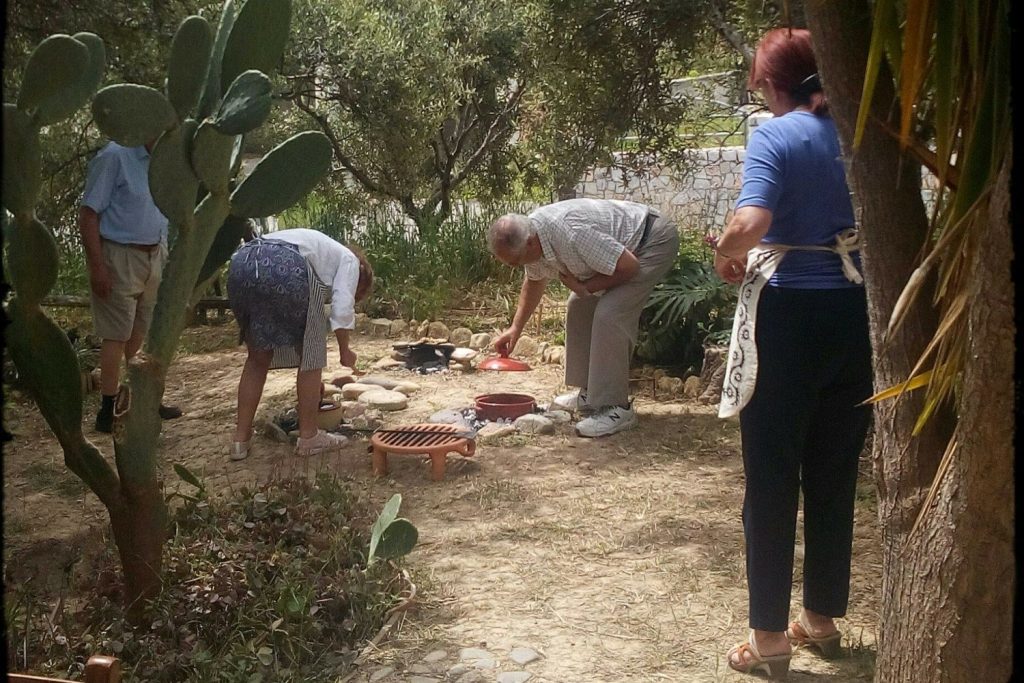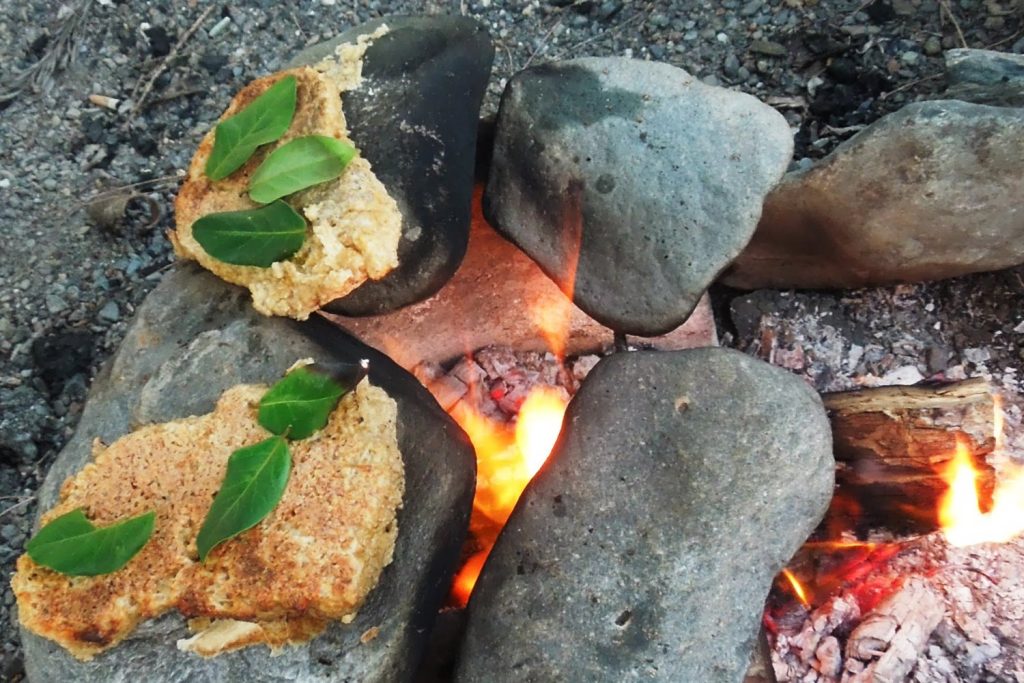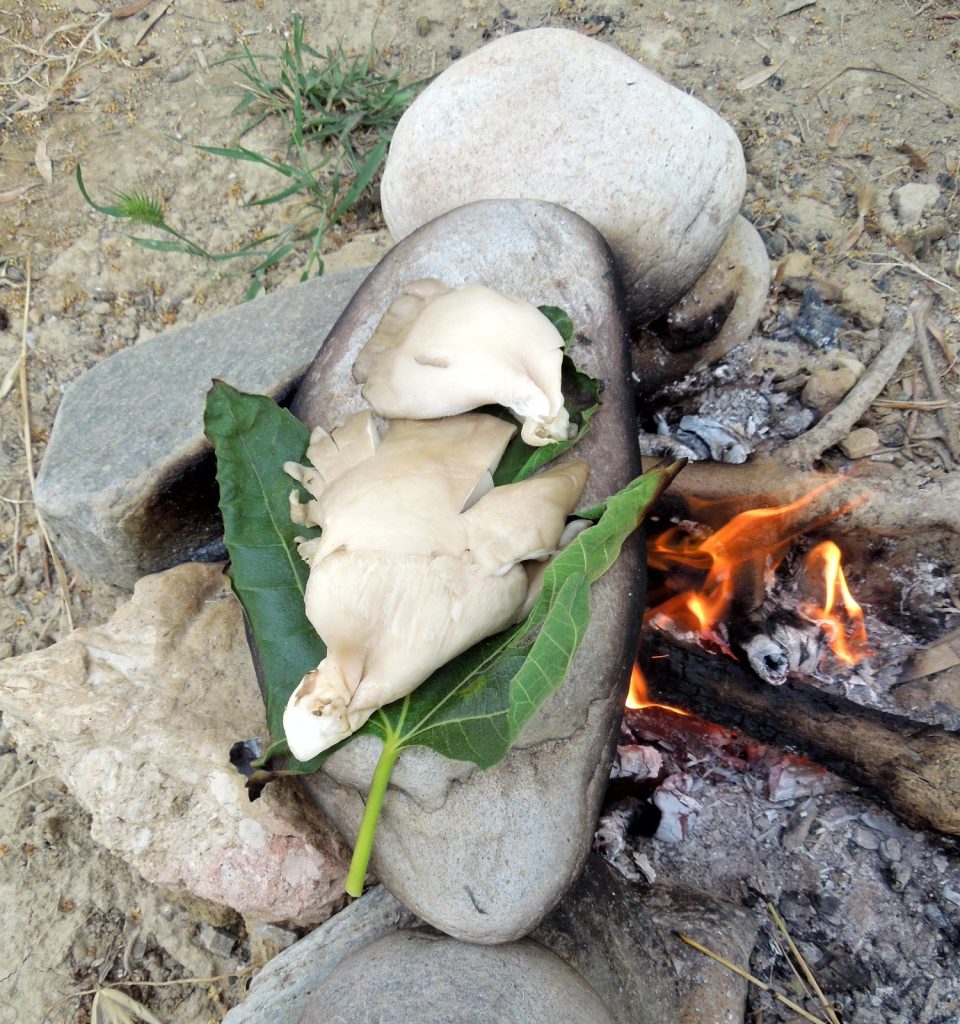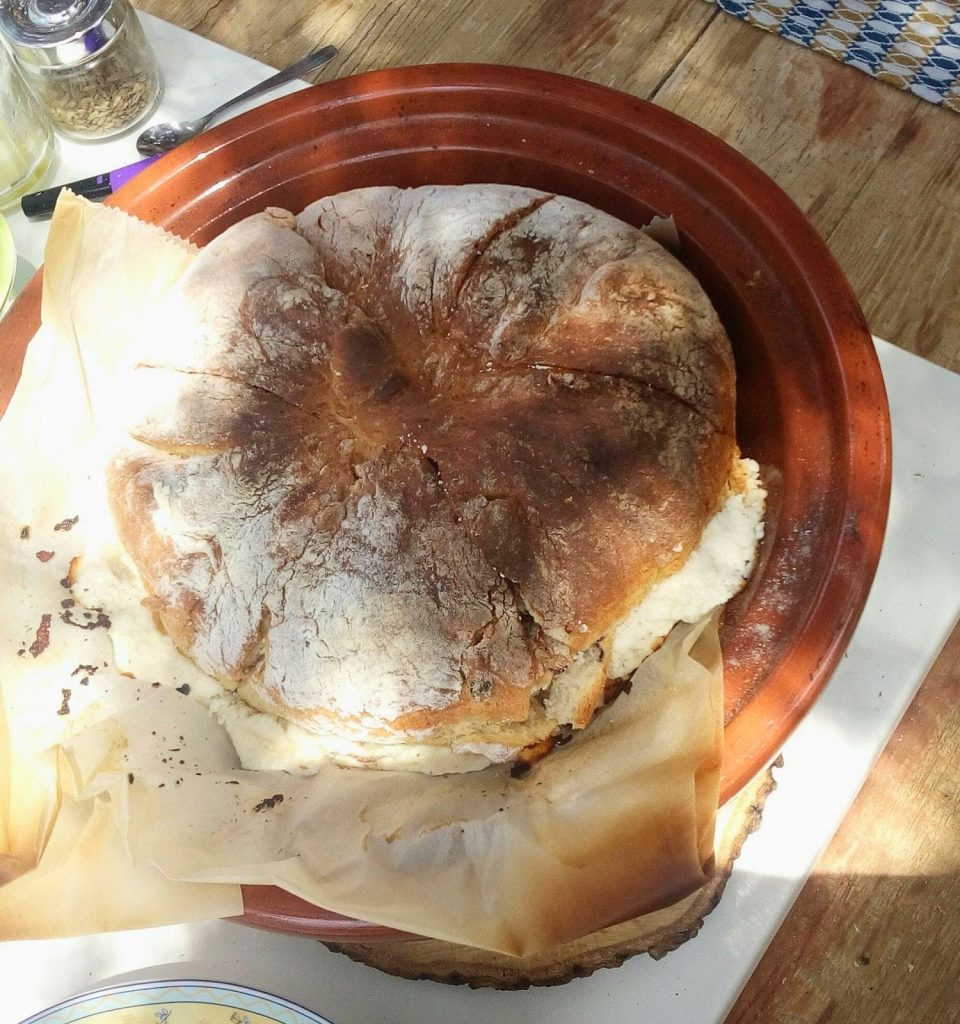Marianna Kavroulaki, experimental archaeologist and researcher of Greek food culture introduced “Culinary Tourism” in Greece, thus tracing the history of Greek food through her seminars on the history of gastronomy and through her interactive historical food walking tours. We had the honor of meeting with Ms Kavroulaki, as she guided us through her personal journey into gastronomy.
Ms. Kavroulaki, you have a degree in archaeology. What led you to gastronomy?
It all started with a research project where I studied the representation of fruits and desserts on coins of the Hellenistic period. Later, as a consultant, I assisted the screenwriter and director Nikos Fragias, who was writing about the diet of the Byzantine monks. And then, of course, there was my curiosity, coupled with the fact that I come from a family where cooking has always held a special place. All this led me to dedicate myself to the adventure of the history of food and gastronomy.
How would you define the term “gastronomy”?
Finding food is one of the most important things we humans need. Consequently, finding food has been an important catalyst in human history. French writer and gastrosophist Jean-Anthelme Brillat-Savarin rightly said, “Gastronomy defines the whole of human life.” Gastronomy explores and defines the elements that contribute to a food culture: identity, power, fashion, commerce. It is, in fact, the mirror of this selfish, bizarre, bold and wonderful species we call “human”.
You currently live and work in Crete. But you have also lived in Amsterdam and Athens. Have these places influenced you?
Yes, of course! The multicultural aspect of Amsterdam and my travels outside the Greek borders taught me to be open — open to new impulses, new experiences, new flavors and new tastes, as they are what characterize most ethnic groups. In Amsterdam, I observed that different dishes from different countries do have similarities. This made me realize that trade does play a big role in gastronomy. In Athens, I experienced how strong, significant and time-lasting food traditions can be, even in a metropolis.
Is there a continuation of Greek gastronomy?
Of course, there is! Today many young, educated people create unique products, and some very well-trained chefs combine tradition with modernity in their creations. The thing that is missing is government support.
What is particularly important for Greek cuisine?
The Greeks love bread above all, as it’s never missing from any meal. Legumes, regional vegetables and wine have covered the Greek table since ancient times. Olive oil was consumed only in the olive-growing regions until a few decades ago. For this reason, it was often very expensive and hard to find. However, the most important element of Greek cuisine and Greek food culture is the fact that everything, whether it is a wedding or a funeral, a reconciliation or a dispute, a memory or a loss, is always closely connected with food. Eating is not a mere intake of food, but a social togetherness.
What is your opinion of the Mediterranean diet?
There is no definition for the term “Mediterranean diet”. Therefore, it is incomprehensible to me why the eating habits of some countries around the Mediterranean are treated the same and lumped together. Commonalities are sought and found where there are none. I do not believe that there is a general Mediterranean diet. I also find the term, culturally speaking, dangerous. Idealizing a way of eating and applying it to a different cultural, social and geographic environment can bring about changes in local cuisine – and sometimes to the detriment of it. The big winners of the Mediterranean diet are undoubtedly tourism, restaurant owners, food manufacturers, and the book trade with its countless books on Mediterranean cuisine.
Tell us something about “culinary tourism”?
Culinary tourism is one of the great travel trends of modern times. In recent years, we have witnessed this phenomenon more and more often in Greece as well, although not to the extent it exists in other countries. I personally believe that culinary tourism has two purposes: On the one hand, it brings economic benefits to the place or region itself; on the other hand, it promotes a deeper understanding of culinary diversity. It provides the opportunity to look at the regional local food culture from a different perspective, promotes the understanding of traditional diets and related cultural values, and enables a better understanding of the places/regions visited. At the same time, it fosters feelings of pride in one’s culinary tradition among locals with the consequence of wanting to maintain and preserve it. Culinary tourism therefore has the potential to lead to a better understanding of the “I” and the “other”.




If you had to preserve one product of Greek gastronomy for future generations, what would it be?
Extra virgin agoureleo oil. This is the olive oil produced from unripe olives. It is characterized by its intense green color and its strong somewhat bitter taste. Also, the agoureleo oil has therapeutic properties, because the unripe olives contain more healthy polyphenols than ripe olives. Incidentally, the ancient Greeks called this olive oil Omfákion.
Can you suggest an authentic recipe that our readers can easily recreate?
I suggest my own interpretation of fava, which the monks ate in the Byzantine monasteries. No recipes have been handed down from Byzantium, but we can get information about food preparation from the literature of that time and from the monastery books.
For the recipe you will need:
- 500g fava (yellow flat peas or broad beans)
- about 1,2 lt of water
- 1 finely chopped onion
- 4 tablespoons of olive oil
- salt
For garnish:
- Honey
- Nutmeg
Preparation:
- Clean the peas under running water and drain.
- Put them in a pot filled with water together with the oil, onion and salt. Bring to a boil, then lower the heat and simmer until the peas/beans are almost soft. If foam forms, skim it off.
- Once the peas/beans are cooked, they can be mashed or pureed. Add a little honey and nutmeg and serve.
Marianna Kavroulaki is from Crete. She studied social sciences and archaeology. Her passion is historical-ancient gastronomy, which she brings to life through experimental, interactive recreations of ancient cooking methods and recipes.
She is the founder of “Greek Culinary History & Cooking Adventures” (courses on historical gastronomy, historical food-walking tours) and the “Greek Gastronomy Symposia” (biennial conference). She has also published many books and articles. Her book “Η Γλώσσα της Γεύσης” (EN: The Language of Taste) was awarded the Gourmand World Cookbook Awards 2012.
More info at the following websites:
www.historyofgreekfood.weebly.com
www.historyofgreekfood.eu
www.greekgastronomy.wordpress.com


